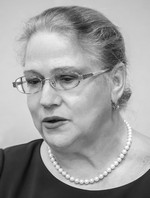Social vector of changes in pupils' attitude to physical education and sports
Фотографии:
ˑ:
Dr.Hab., Professor L.I. Lubysheva1
PhD, Associate Professor I.M. Salakhov2
1Russian State University of Physical Culture, Sports, Youth and Tourism (GTSOLIFK), Moscow
2Surgut State University, Surgut
Objective of the study was to explore the senior schoolchildren’s attitudes to physical culture and sports by means of sociological analysis. Subject to the sociological analysis were data arrays of a large-scale survey designed to profile the Russian schoolchildren’s attitudes to the school physical education. Subject to the survey were 2085 IX-X-graders sampled in seven federal regions. The survey data was indicative of the modern Russian society generally cultivating positive attitudes to physical culture values in the young people with the growing priority being given by the latter to active physical practices and sports. But the role of physical culture and sports in the system of common social values and social personality building processes is still traditionally underestimated as was the case in the past. The underestimation is seen in the physical culture tools being mostly viewed as health practices rather than efficient methods to build up the young individual’s willpower and temper. The study findings showed that the schoolchildren tested with positive attitudes to physical training and engaged in physical culture and sports on a systemic basis generally demonstrate higher stamina, self-confidence and optimism. Physical practices were found to facilitate the prudent leisure time management and help the children be more active in other activities to fully employ own natural resources. The integrative potential of physical culture and sport practices and their popularity and accessibility may heavily contribute to the young people’s social activities on the whole. Teachers will help the young people develop positive and active attitudes to this activity domain.
Keywords: schoolchildren, values, physical activity, motivation, interest, opinion poll, questionnaire survey.
References
- Alekseev S.V., Gostev R.G., Kuramshin Y.F., Lotonenko A.V., Lubysheva L.I., Filimonova S.I. Fizicheskaya kultura i sport v Rossiyskoy Federatsii: novyie vyizovyi sovremennosti [Physical Culture and Sport in the Russian Federation: Challenges of today]. Moscow, 2013.
- Lubysheva L.I. Sotsiologiya fizicheskoy kulturyi i sporta [Sociology of Physical Culture and Sports]. Moscow, 2010 / Lubysheva L.I., Mochenov V.P. Sotsializatsiya podrastayuschego pokoleniya v usloviyah sportivnoy deyatelnosti [Socialization of younger generation in conditions of sports activities]. Materialyi kongressa "Olimpiyskiy sport i sport dlya vseh. XX Mezhdunarodnyiy kongress. 2016" [v 2 ch.] [Proc. Congress "Olympic sport and sport for all. XX International Congress. 2016: in 2 parts], P. 1. St. Petersburg, Polytechnic University publ., 2016, pp. 118-121.
- Lubysheva L.I. Sotsiologiya fizicheskoy kulturyi i sporta. Uchebnik dlya stud. uchrezhdeniy vyissh. obrazovaniya. 4-e izd., pererab. [Sociology of Physical Culture and Sports. Textbook for stud. of higher education institutions]. Moscow: Academia publ., 2016, 272 p. (Ser. Bakalavriat).
- Stolyarov V.I. Sotsiologiya fizicheskoy kulturyi i sporta [Sociology of Physical Culture and Sports]. Moscow, 2005.



 Журнал "THEORY AND PRACTICE
Журнал "THEORY AND PRACTICE